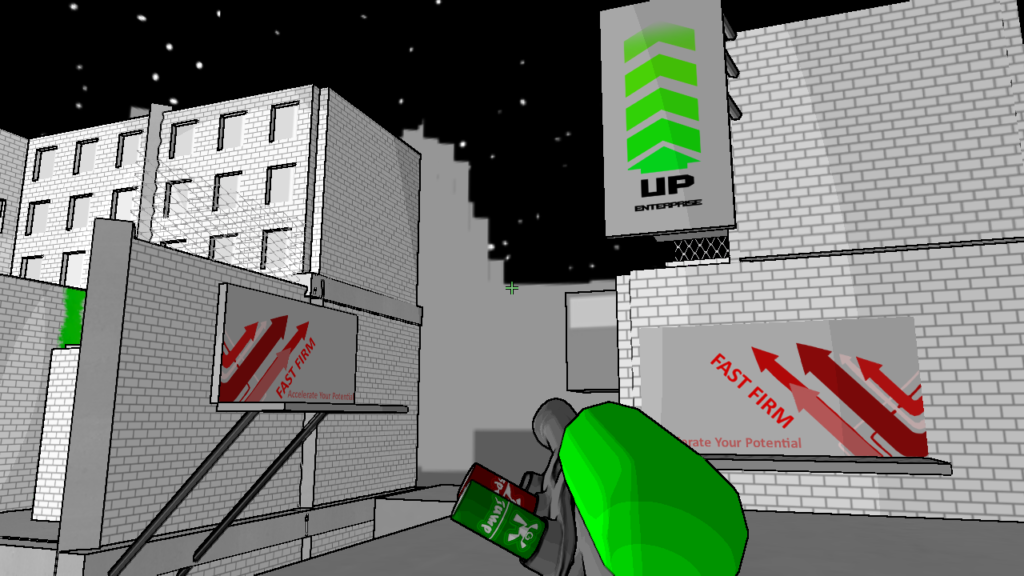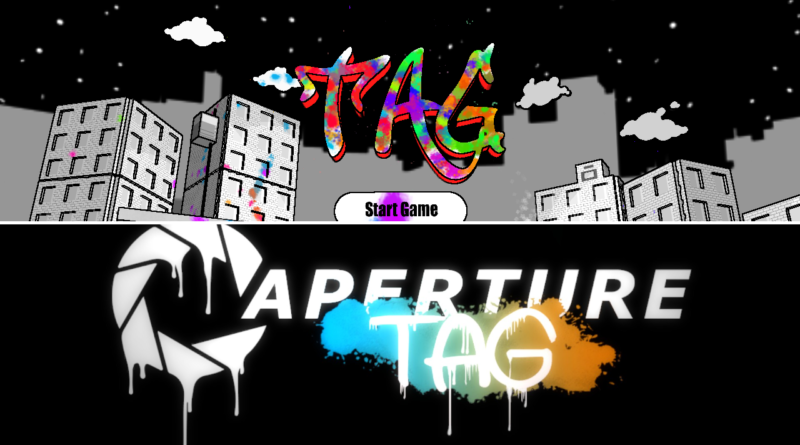Double Tag, Part Two
I last talked about Aperture Tag, a Portal 2 mod where the Propulsion and Repulsion Gels gets the limelight they deserved. But thing is, just like how the original Portal and its mechanics were born from a small game called Narbacular Drop, the gel mechanics were from a game called Tag: The Power of Paint.
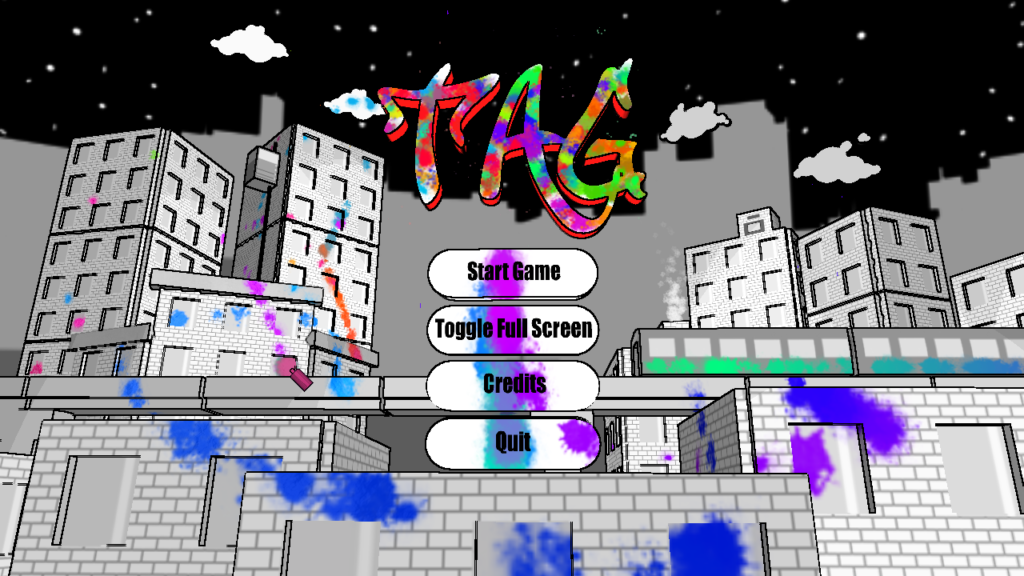
The game features paint that changes the physical properties of surfaces. It has red paint, which is the one that speeds you up. Aside for a cosmetic change from red to orange nothing much has changed during its transition to the Portal series, although while replaying the two games, I feel that you build up momentum faster in Tag than in Aperture Tag. That might just be me, though.
The green paint is the predecessor of the bouncy blue Repulsion Gel, and it is slightly different to the one in Portal 2 and Aperture Tag. As your character in Tag does not possess the ability to jump, coming into contact with the paint will just automatically bounce you upwards. Even if you run straight on a perfectly level surface onto a perfectly vertical wall coated with green paint it’ll still bounce you upwards while it bounces you back. It also means you can’t walk on them, since every time you step on it you’ll bounce up as if the floor is covered with hot coals.
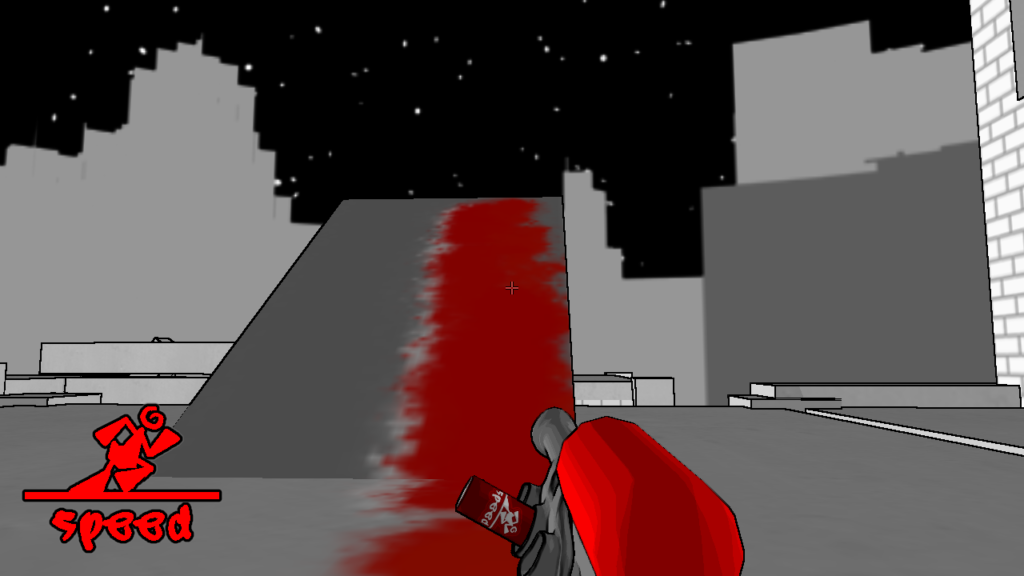
And to ensure that you can undo your mistakes, the gun comes default with white paint, which essentially turns the paint-coated surfaces back to normal. It is extremely useful, especially for someone like me, the man who compensates for his lack of skill in platformers by just coating every surface with paint, and facepalms five seconds later because he accidentally bounced himself off a ledge.
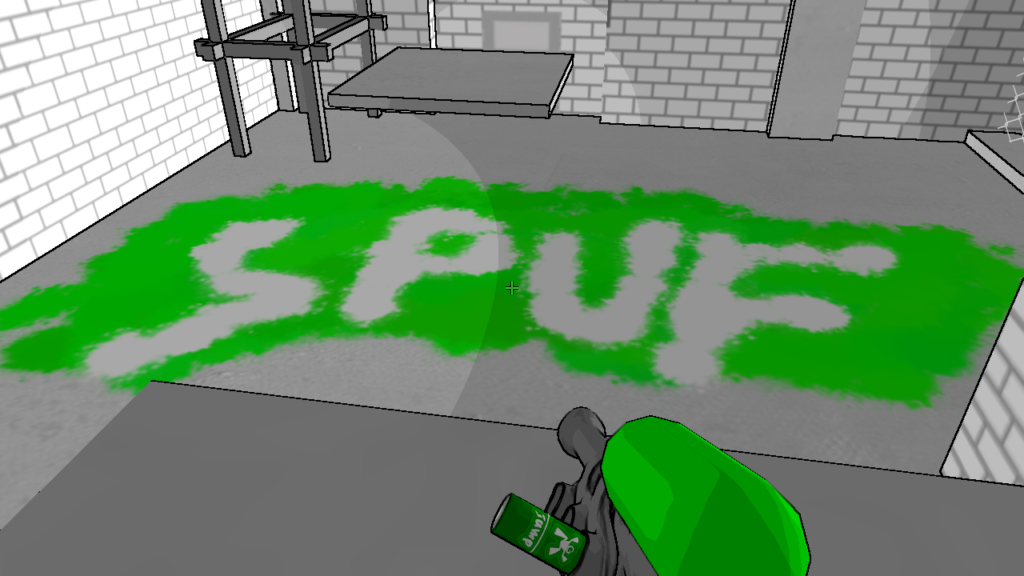
And yes, there is a third paint in the game (technically the fourth, but white paint doesn’t really count). It’s the blue paint which allows you to stick onto walls. In fact, it was originally going to be a part of Portal 2 as the Adhesion Gel, but play testers were completely disoriented by it. I mean, jumping around on portals that are placed on surfaces of different orientation to each other is horrible enough, and being able to stand on walls and ceilings doesn’t help to keep your lunch in your stomach.
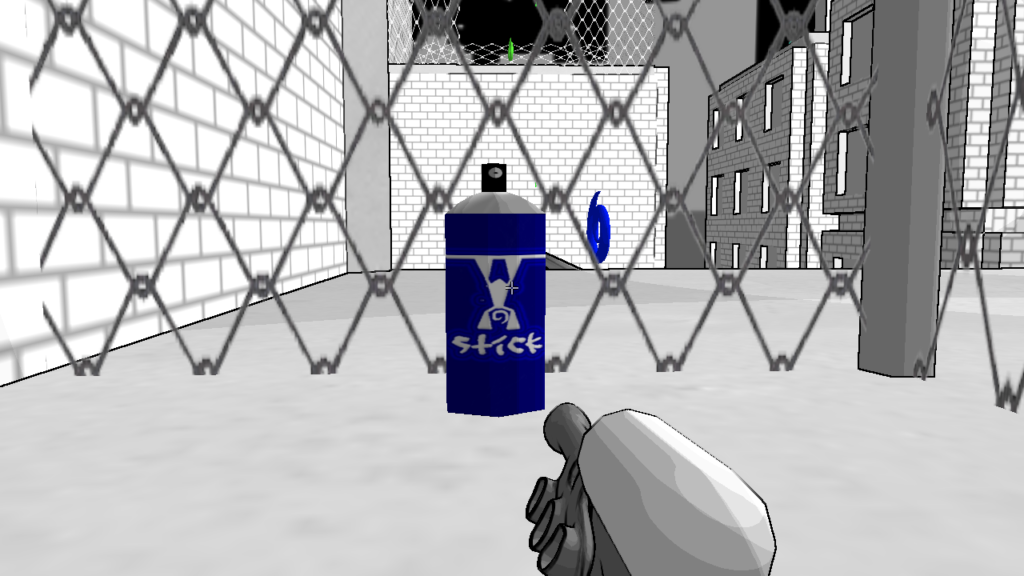
In Tag, the effects of blue paint does get a bit disorienting. But it also makes for really great gameplay moments, such as its first dedicated level where you crawl around on walls, pillars and ceilings. I get that this combined with portals will really be disorienting for the players and nausea-inducing for those who wanted to play it on VR for some reason, but the blue gel can make for some rather interesting gameplay moments, such as last-minute saves from falling into a pit by sticking onto the side of said pit.
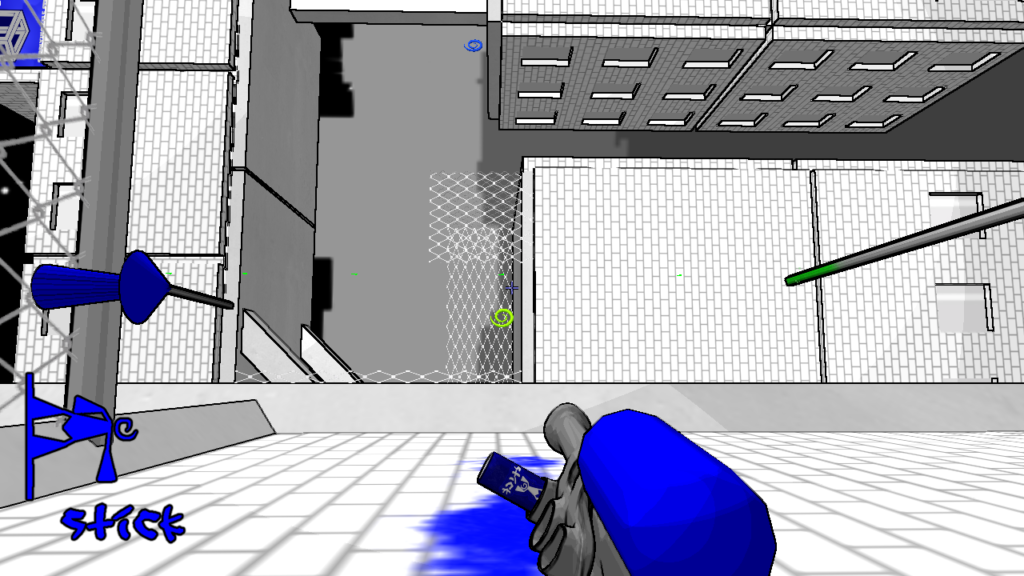
If you have half an hour to kill, I do recommend you download this game and give it a spin. The blue paint does add a new dimension to gameplay, and I personally like the open environment a bit more than Portal’s rooms. Besides, it is rather interesting to look at how the Portal 2’s gel mechanics could’ve been if it was part of an independent game instead of being a part of Portal. The paint mechanics could carry a whole game by itself, as Tag: The Power of Paint clearly demonstrated to us all.
